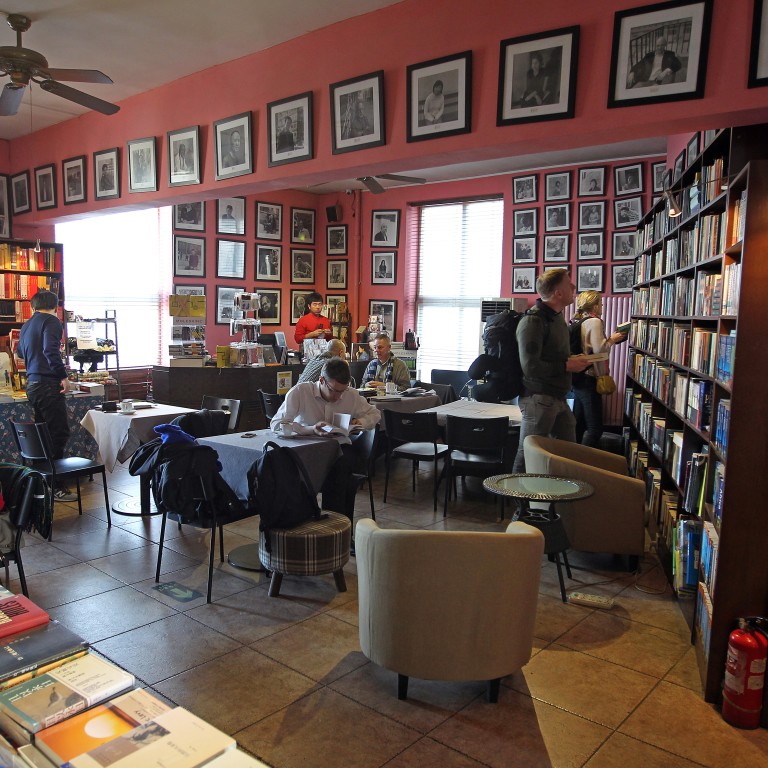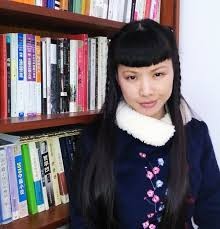
How the Bookworm chain is helping shape China's literary scene
From its humble origins as a small lending library in a Beijing courtyard, Bookworm has grown to three stores and a big online presence
Peter Goff is the co-founder and general manager of the Bookworm chain, which has outlets in Beijing, Chengdu and Suzhou. It all started in 2002, when the former journalist's friend Alex Pearson set up a small lending library and cafe in a Beijing courtyard, and he offered to help her out. They called the place Bookworm and began running book readings and discussions. Over the next few years, the Beijing Bookworm moved to several sites before finding a permanent home in Sanlitun district in 2005. The bookshop/library/cafe concept took off and a year later Goff quit journalism to focus on the business, opening a branch in Chengdu in 2006 and another in Suzhou in 2007. Today the businesses are going strong and the Irishman divides his time between the three bookstores, which play a significant role in shaping the literary scene on the mainland.
We bought them mostly from second-hand bookstores in the UK and Ireland, and literally put them on slow boats to China. The whole market has changed significantly and now it's much easier to get English-language books in China. Back then it was very much a rarity, which is why we started collecting them and making them accessible through a library system.

Book sales were small even at the best of times, but in 2008 came the Kindle and then these heavy book discounts, and it got very competitive. We make our money from the cafe/restaurant and the salon events. We have just celebrated the 10th anniversary of the Beijing Bookworm and worked out that we have hosted about 3,000 authors over the past decade. Most of our book sales are driven by people coming to listen to an author and then buying a signed copy of the book. Initially it was just English-language events and mostly international authors and an international audience. That has changed significantly over the years and now we have a lot of Chinese-language events and the audiences are very mixed.
That whole culture of an author actively promoting their work via book talks and readings and signings historically hasn't really existed in China, but it's very much developing now. There are a lot more of these salon activities where people go along and meet authors or have a panel discussion. They seem to be really blossoming in China now.
The internet and social media are very liberating. Social media is huge here and there are a lot of people publishing poetry and short fiction and novels serialised online. An industry bottleneck existed before where you had to work your way through one of the major publishers or you were never going to make it. Now there are many people who are self-publishing, publishing on blogs or online literary journals, so there isn't that commercial barrier to entry that there used to be. They are making their name through those channels and gravitating towards the traditional publishing houses.
There is a big influence from the Japanese market and writers like Murakami top the bestsellers' list. A lot of young people read Japanese authors, so the books that are coming through are in the genres of magic realism, surrealism and fantasy fiction.

Contemporary issues - examining the human condition, dealing with frantic urbanisation and environmental issues, how to develop themselves as individuals and express their creativity and make a living. These are the things they're concerned with. We just had a competition - the China Bookworm Literary Award - and the winner was Wang Zhezhu from Guangdong and the runner-up was Li Ziyue from Fujian. They are both young and have an interesting take on things.
It will happen, but who it will be and which author will break out and really set the trend, that's difficult to tell. We have an in-house literary journal , which highlights Chinese writers in translation.
We ran a competition called Flash Europa 28 - we took 104 stories from the 28 countries of Europe and translated them into Chinese and then distributed them free over social media, through WeChat and Weibo, one every day. It was a fun thing to get Chinese people to read and as it's flash fiction it's just 500 words. So far on our own WeChat site we've had four million reads of these stories.

